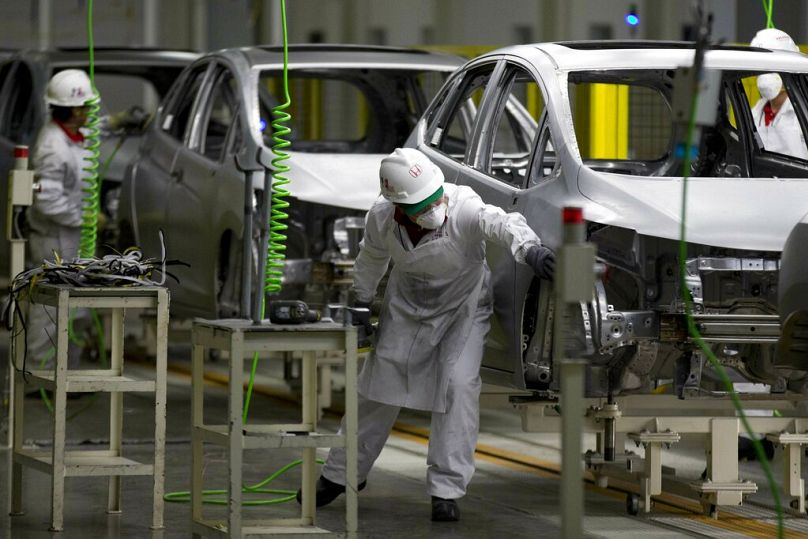US President Donald Trump on Wednesday said he was placing 25% tariffs on car imports, a move the American leader claims would boost domestic manufacturing.
“This is permanent,” Trump announced, underscoring his seriousness about the tariffs directive. He added that the vehicle tariffs would come into effect next Friday.
The tariffs come as analysts warn that this could likely affect the US automotive industry, as even US car makers source their components from around the world, meaning that they could face higher costs and lower sales.
Some of the projections estimate that the likely average price of an imported car might increase by around €11,000 if the taxes are fully passed on to the buyer, which could contribute to general inflation.
In the first reaction to Trump's announcement, General Motors shares plunged roughly 3% on Wednesday afternoon while shares in Stellantis, the owner of Jeep and Chrysler, dropped nearly 4%. Ford’s stock was up slightly.
Von der Leyen reacts
A swift reaction followed in Brussels, where European Commission President Ursula von der Leyen expressed regret at the US decision. She vowed that the bloc would protect consumers and businesses.
“Tariffs are taxes — bad for businesses, worse for consumers equally in the U.S. and the European Union,” she said in a statement, adding that the EU’s executive branch would assess the impact of the move, as well as other US tariffs planned for the coming days.

Trump has long declared that he would impose tariffs on auto imports as a hallmark of his presidency, hoping that as the price of the taxes increased, more manufacturing would move to the US and the budget deficit would be reduced.
However, American and international carmakers already have plants all around the world to meet demand from customers across the world while keeping prices competitive.
There are concerns that it may take years for businesses to plan, construct, and launch the additional factories that Trump is proposing.
Canada calls Trump’s tariffs a ‘direct attack.’
Meanwhile, Canadian Prime Minister Mark Carney says he needs to see the details of Trump’s executive order before taking retaliatory measures.
He described Trump's tariffs as unjustified and said he would be heading straight to Ottawa to chair his special Cabinet committee on US relations on Thursday.
Earlier, Carney announced a €1.2 billion “strategic response fund” that will protect Canadian auto jobs affected by Trump’s tariffs.
Carney stressed that the automobile industry directly employs 125,000 Canadians and nearly another 500,000 in connected industries, making them the country's second-largest export.
The recently appointed prime minister wants to mitigate the effect of the tariffs on the Canadian economy and has called for talks with Trump, whom he has not yet met or spoken to since being sworn in on 14 March.







